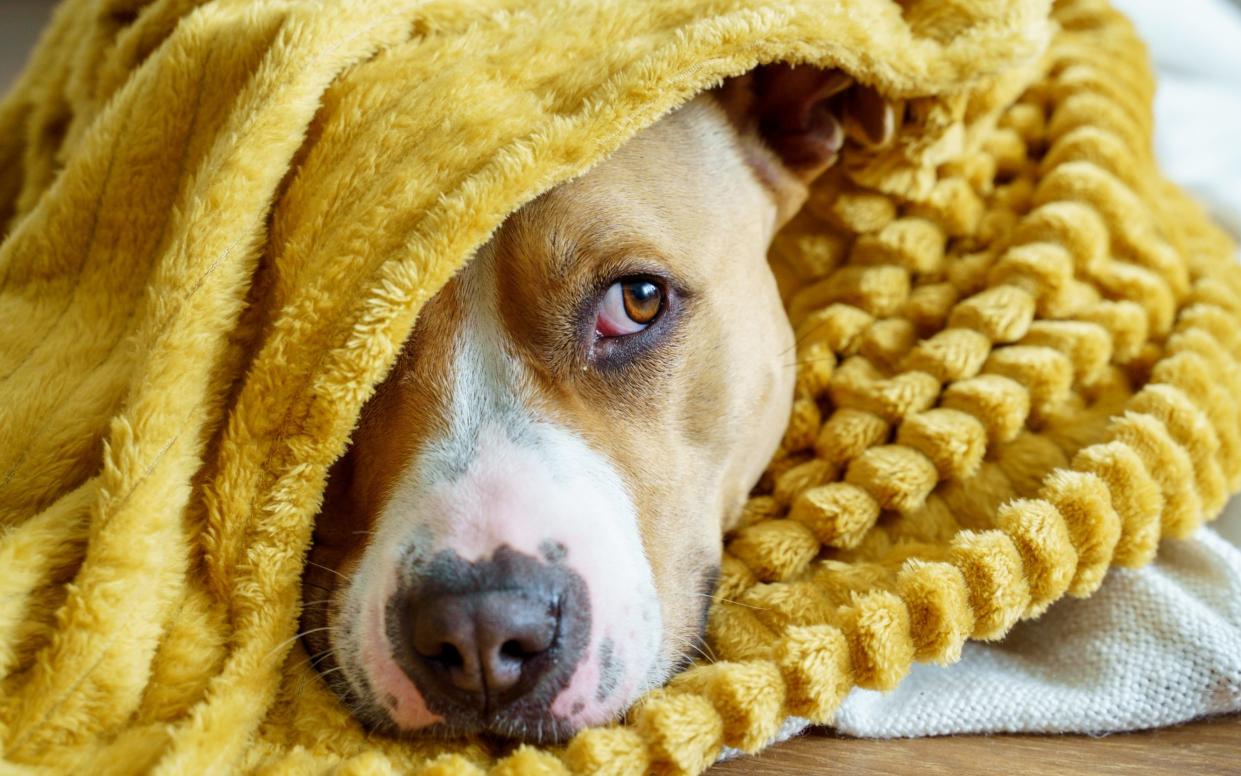Isolate ill pets to avoid catching superbugs like E. coli, vets say

Pets should be isolated when ill to stop them passing antibiotic resistant superbugs to owners, experts have warned.
Veterinary scientists from the University of Lisbon took samples from 60 dogs and five cats who were suffering infections, and also swabbed their owners, in 65 households across Britain and Portugal.
They found that the animals were often carrying the same antibiotic-resistant bacteria as the humans.
In Britain, one dog carried two strains of multidrug-resistant E. coli, while in two households, both dog and owner were carrying the same Enterobacterales bacteria.
In five households in Portugal, pets and owners were carrying drug resistant bacteria and genetic analysis showed the strains to be the same, indicating that the bacteria passed between pet and owner.
In one of the five households, a dog and owner also had the same strain of antibiotic-resistant Klebsiella pneumoniae.
The experts warned that bacteria can be passed between pets and humans by petting, touching or kissing and through the handling of faeces. They recommended washing hands whenever handling animals and isolating sick pets.
“When your pet is unwell, consider isolating them in one room to prevent the spread of bacteria throughout the house and clean the other rooms thoroughly,” said lead researcher Juliana Menezes, of the antibiotic resistance lab in the faculty of veterinary medicine at University of Lisbon.

“Recent research indicates that the transmission of antimicrobial resistance (AMR) bacteria between humans and animals, including pets, is crucial in maintaining resistance levels, challenging the traditional belief that humans are the main carriers of AMR bacteria in the community.
“Understanding and addressing the transmission of AMR bacteria from pets to humans is essential for effectively combating antimicrobial resistance in both human and animal populations.”
The research focused on bacteria which are resistant to a type of antibiotic called third generation cephalosporins, which are used to treat a broad range of conditions, including meningitis, pneumonia and sepsis, and carbapenems, part of the last line of defence when other antibiotics have failed.
All of the dogs and cats were successfully treated for their infections and the owners did not become ill from the bacteria.
Dangerous level of superbugs
Antibiotic resistance is reaching dangerously high levels around the world.
Drug-resistant infections kill more than 1.2 million people a year globally, projected to rise to 10 million by 2050 if no action is taken. The World Health Organization (WHO) classes antibiotic resistance as one of the greatest public health threats facing humanity.
The team said it was important to consider pet-owning households when designing strategies to fight antibiotic resistance.
“Learning more about the resistance in pets would aid in the development of informed and targeted interventions to safeguard both animal and human health,” added Ms Menezes, a doctoral student.
The research was presented at the European Society of Clinical Microbiology and Infections conference.


